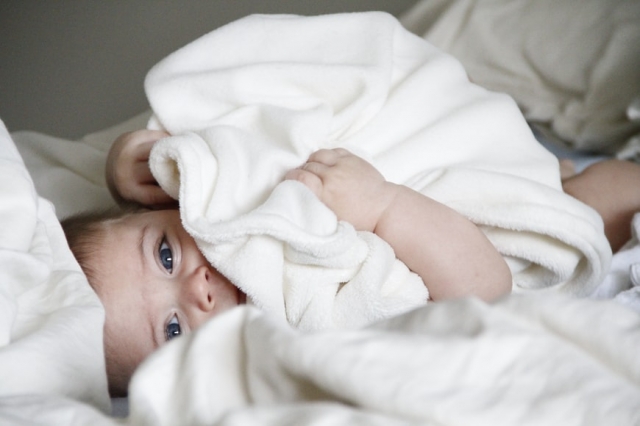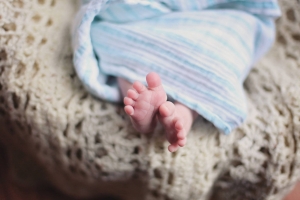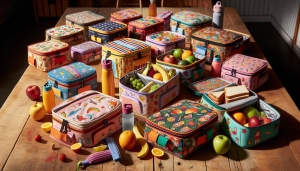Baby anger is part of normal child development, especially at the age when the child begins to develop independence from 18 months of age. Some fits of anger only last a few minutes, but others can last for more than an hour.
Some children are more prone to be angry than others. This may be because they have a more assertive temperament or even a lower tolerance for frustration. It is also remarkable that temper tantrums are more common in children who are less comfortable expressing their discontent verbally. Their anger will then manifest itself through cries and gestures.
During the state of anger, the child can:
Yell
Cry
Kick, punch, or head
Bite
Rolling on the floor or gesturing uncontrollably
Throwing objects
Refuse to get caught
Hold his breath (don't worry, no intervention is necessary - he will resume breathing normally on his own).
1. A baby anger; How to react when your baby is angry?
Anger is quite normal but very often causes the baby to cry! Very quickly, you will understand what they are hiding ...
In a baby, anger can explode for a yes or a no. These crises are quite normal but very often cause the baby to cry! You will quickly understand what they hide, learn to defuse them, and even avoid them.
You've decided to go out for a walk, but your baby refuses to leave his play mat or let go of his favorite toy; your baby is having a temper! It's not always easy to know how to react when it's the first time ...
These temper tantrums are a must for your baby because they will help him grow well. Indeed, by experiencing this feeling of frustration, he will gradually learn to distinguish between his wants and needs. In short, to grow up.
To manage this type of situation well, avoid reducing his anger, stifling his, refusing it (saying "It's okay") but try to understand what triggered it to calm his annoyance. The goal is for him to learn to deal with his frustrations on his own. You have to start young because this apprenticeship is long.
Related: Healthy Baby; ten signs telling parents that their baby is healthy
2. A baby anger; Why does the child have an anger tantrum?
For toddlers, a tantrum is often a way of reacting when they feel overwhelmed by the intensity of their feelings or needs and are unable to express them. Even for a child who speaks well, putting his emotions and feelings into words is difficult and takes practice and encouragement.
Anger often occur when a toddler:
Cannot do what he wants (faces a constraint);
Has to do something he doesn't want to do;
Is overwhelmed by feelings of helplessness, frustration, anger, anxiety, or even fear;
Is tired, hungry, excited, or not feeling well;
Fails to do something he wants to accomplish on his own;
Lack of words to express himself;
Has discovered through experience that anger allows him to get what he wants;
Wishes to have attention, perhaps because he feels left out, ignored, or alone, or, conversely, because he is used to monopolizing attention.
3. A baby anger; Too much anger is not good for him
Repeated anger in a child is likely to give rise to too many frustrations in him, which will turn into "unhappiness." To us then the difficulties to go to bed, the nights of nightmares, a less confident and more impulsive child. Not to mention that these nervous crises will tend to strain us, parents, and therefore degrade the home's general atmosphere. It would be a shame because the family atmosphere has a huge impact on the good development of our child, his development, and on ours too!
4. A baby anger; How to prevent an anger tantrum?
Although tantrums are a normal part of children's development, you can help your little one reduce their frequency. Remember, however, that no parent can prevent all of their child's temper tantrums. Here are some tips for reducing your child's temper tantrums.
Meet his basic needs:
Maintain a stable routine for meals, snacks, and sleep.
Avoid making your child too tired or hungry. When you go out, pack a snack.
If your child starts to show restlessness, try to see if they are tired, hungry, lack of space to play, etc.
If you know you're going to a place he finds boring, consider packing things that he can occupy.
Act before the first signs of anger:
Make sure your toddler has fun with toys of his age. This reduces the risk of frustration.
Place objects that he should not touch out of his reach and out of sight to avoid temptations and, subsequently, fits.
Divert his attention when you feel his anger rising or lead him to another room.
Find strategies to prevent his usual frustrations. For example, if your child often gets angry when his little sister is breaking down the puzzle, they are doing, suggest that they sit at the kitchen table rather than on the floor.
When you go out, let him know what to expect. If, for example, you go to the grocery store, tell him ahead of time that you are not going to buy him a treat but that you will let him choose the cereal. You can also give it a small task to do. For example, ask him to put oranges in a bag or show you red, yellow, etc. When their brain is focusing on a task, your toddler is less likely to have a temper.
Encourage other ways of expressing frustration:
Help your child express his feelings in words and tell you how he is feeling. By encouraging him to talk about how he feels, you can help him better control his emotions and not get overwhelmed by them.
Be patient and try to set a good example for him. If you try to control your anger and frustration, your little one will tend to do the same. On the other hand, it's hard to demand that he stop getting angry if you get carried away at the slightest glitch. When the situation lends itself, say aloud what you do to feel better when something bothers you, for example: "I'm disappointed that Martine isn't coming for supper, but I'll watch a good movie instead."
Praise your child when he successfully expresses his negative emotions and needs through words rather than tantrums.






